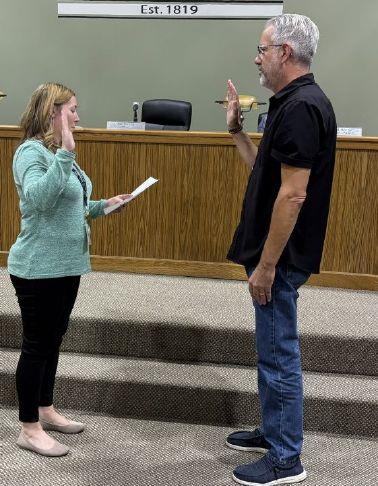'A win-win for everyone': New county initiative strives to lessen waste, help others
A new initiative connecting financially-strapped patients with much needed but unused diabetic supplies recently started in Lincoln County.
While diabetes a chronic disease with no cure, impacting millions and can lead to possibly fatal consequences, insulin can be a critical treatment tool, but it can also be expensive.
Now, a new initiative called the Lincoln County Diabetic Supply Take-Back Program is hoping to collect donations of unconsumed and in-date diabetic supplies including glucose test strips, insulin syringes, and other related items and then reallocate them to healthcare organizations and licensed professionals.
“Diabetes is a condition that happens when your blood sugar (glucose) is too high,” said Sarah Valenza, Lincoln County Health Department public information specialist. “When your blood sugar goes up, it signals your pancreas to release insulin. With diabetes, your body doesn’t make enough insulin or can’t use it as well as it should. When there isn’t enough insulin or cells stop responding to insulin, too much blood sugar stays in your bloodstream. Over time this causes serious health problems.”
The initiative, which started last month, could help those impacted by diabetes “live healthier, longer lives” says Lincoln County Coroner Dan Heavin. Along with Heavin, the Lincoln County Health Department and the Lincoln County Ambulance District have teamed up with Insulin For Life USA with the goal of helping others and protecting lives.
Sarah Czarnecki of the Lincoln County Ambulance District says, “we hope to facilitate the redistribution of diabetic supplies for those in need across the world.”
“Being able to donate diabetic supplies and insulin produces less medical waste as seen first-hand by the Lincoln County coroner, Dan Heavin,” Czarnecki said. “Managing the medication disposal sites, Dan sees a fair amount of insulin disposed of in the medication disposal bins throughout the county. Instead of disposing of the unused insulin, having the ability to redistribute the medication for use is a win-win for everyone. Access to diabetic supplies and insulin is life-saving for diabetic patients.”
Items that are accepted include ketostix, insulin vials, insulin cartridges, glucose meters, insulin pens, A1C test kits, glucagon, lancing devices, glucose test strips, insulin syringes, pen needles, lancets, insulin pump supplies, and continuous glucose monitor supplies. No used or expired items are accepted. Czarnecki suggests keeping insulin refrigerated as long as possible and to not freeze it. Additionally, Czarnecki says it’s important when donating any item to make sure it is handed to a person and if it is insulin to let the person know that it needs to be refrigerated. If uncertain, the item can still be donated and will be evaluated before being shipped off.
“There has been a positive response so far within the community, especially among those donating supplies. They are happy knowing their unused supplies and insulin with be redistributed to those in need and not thrown away, never to be used,” she said.
For more information, please visit iflusa.org or stop by the Lincoln County drop off sites at the Lincoln County Ambulance District Base 1, 1392 S 3rd St in Troy; or the Lincoln County Health Department located at 5 Health Department Dr. in Troy.

